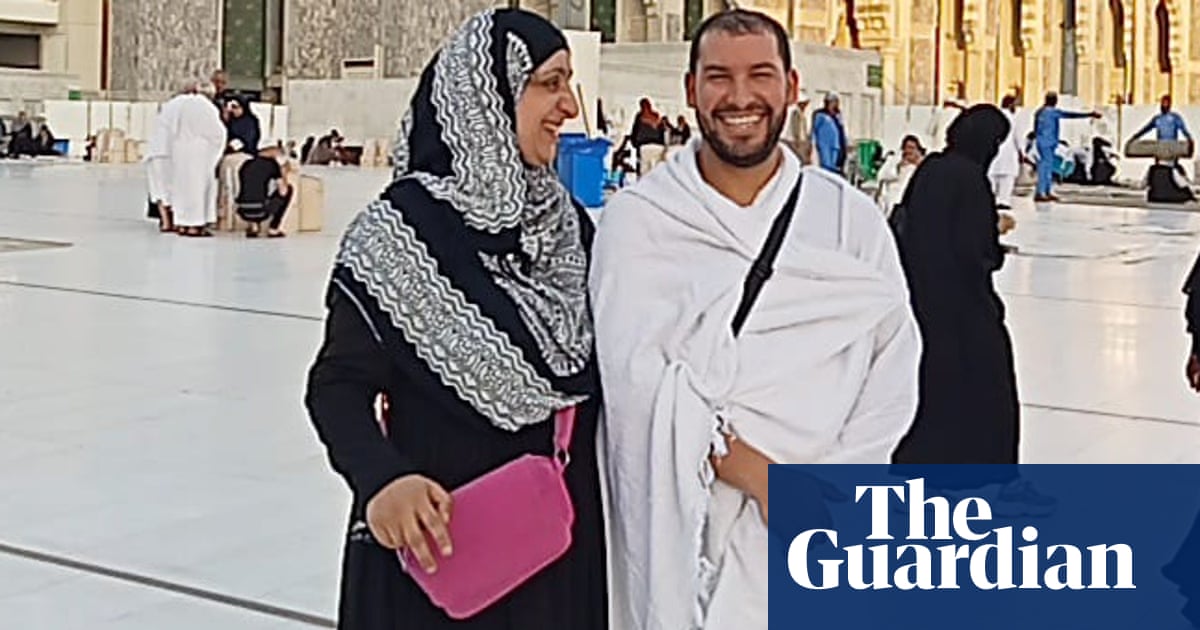
Families of Britons arrested in controversial circumstances abroad should raise concerns promptly in public because Foreign Office “quiet diplomacy” is not effective, an expert has warned after the arrest of a former British Royal Marine in Dubai.
Matthew Hedges, a British academic who was detained and tortured in the United Arab Emirates in 2018, said the case of Matt Croucher, a military veteran held in the country for seven months, also showed how far the “international influence of the UK had disappeared” in the Gulf region.
“We always tell families to go public at the first opportunity,” said Hedges, then a Durham university PhD student, who was released from the UAE after his wife, Daniela Tejada, began campaigning in the media, six months into his detention on charges of espionage.
“Foreign Office quiet diplomacy does not work,” Hedges said. “The reality is that the British government’s behind-the-scenes influence has disappeared. Look at the relationship between the UK and the UAE, the two states are bickering over a multitude of issues. That does not scream respect or warm relations.”
Oliver Dowden, the deputy prime minister, secretly visited the UAE last month in an attempt to repair relations after an Abu Dhabi-backed attempt to buy the Daily Telegraph was blocked. An adviser to Dowden did not respond when asked if the senior Conservative had raised Croucher’s case.
Overnight it emerged that Croucher, 40, who was awarded the George Cross in Afghanistan, was on bail in the UAE, his passport taken, after he had been arrested in November and questioned on his links to the Ministry of Defence in a case his family described as “made up and ridiculous”.
A security consultant normally based in the UK, Croucher was charged with “intentionally and illegally accessing a telecommunications network” on 4 November when he passed through the UAE, visiting friends on his way to Britain after working in Qatar and Saudi Arabia.
No prosecution has been taken forward, and the family complained to the Times that the UK Foreign Office was being “useless” in offering Croucher any assistance, “often making things worse with misinformation, telling him the case was formally concluded and would only take one to two months”.
The family added, in a statement released on Tuesday: “We don’t understand why it’s taking the Dubai authorities so long to process this case, being constantly told it should be resolved in a week or two, a case we believe to be made up and ridiculous.”
Hedges said he thought Croucher’s case was considered potentially less serious by the UAE than his own because the former marine “has been allowed out on bail”, even if he could not leave the country. A more serious national security allegation would mean he would have remained in jail, when instead he was held for four days.
Croucher, a reservist from 40 Commando, was on a covert reconnaissance mission near Sangin, south of Kajaki, when in 2008 he felt a tripwire go tight against his legs. Instead of running away, a move he feared would kill him, he threw himself on top of the grenade, using his body armour to shield him from the full force of the blast.
The veteran is one of only 22 living recipients of the George Cross, of which only 406 have been awarded.
An FCDO spokesperson said: “We are supporting a British man in the UAE and are in contact with the local authorities.”












